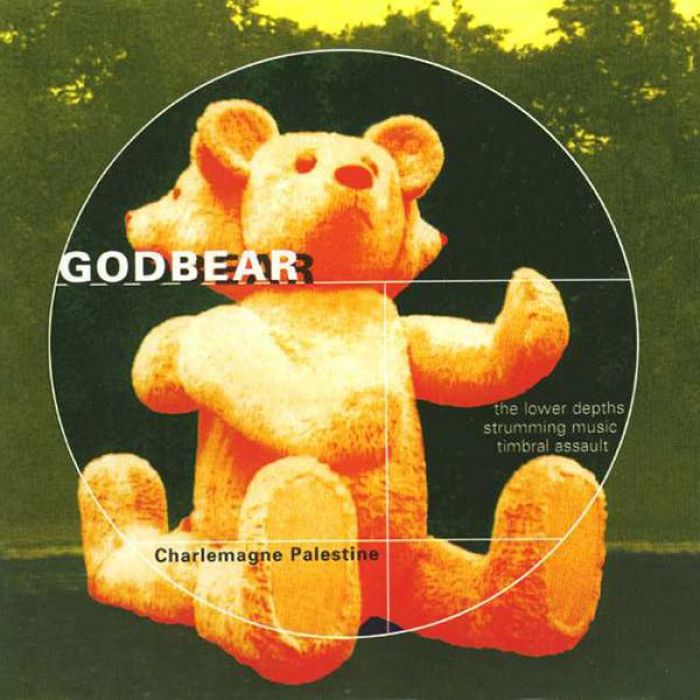Godbear by Charlemagne Palestine (Review)

When I was younger, I took the obligatory piano lessons. Maybe my parents thought I’d become a great pianist or something, or that I’d carry on a family tradition. Needless to say, that didn’t really come to fruition. The only thing I remember from those lessons is how to play “Here We Go” and the opening notes to “The Volga Boatmen.” And looking back, I can’t help but wonder what my old piano instructors would thing of this album. And back then, I probably never would’ve dreamed of the music contained on this album.
On Godbear, Charlemagne Palestine creates huge waves of sound by simply banging on the piano’s keys and holding down the sustain pedal. Well, that’s the crass way of saying it. But then you hear the end result. As Palestine himself says in the liner notes: “I heard Debussy, Ravel, gamelans, carillons, ragas, oscillators, and orchestras…in the overtones… like a shimmering fountain.” Overtones collide and crash into each other, until all that’s left is a pulsing wall, a sea of sound.
Then he introduces new melodies and new notes using the same technique, moving over the keys, hammering in sound after sound. Somehow, that humble piano has transformed itself into the roar of a jet engine as on “The Lower Depths.” On “Timbral Assault,” you’re standing inside a tower as the bells above chime out their song, each one fighting to be heard, but everything coming together in a sound My Bloody Valentine might dream of. The sounds begin to sway and careen and the walls begin to pulse and shift as Palestine dives deeper and deeper into the mass he creates.
“Strumming Music” opens fairly lightly, with a light sprinkling of notes played. A single note being hit rapidly can be heard, providing a beacon of sorts among the eventual waves of sound. But on this one, the waves are lighter and brighter. But the result is the same. That humble instrument, the one that never receives any glory in light of the all-important electric guitar, releases forth a glorious sound that is at once reminiscent of Seefeel or Windy & Carl’s Antartica and yet much more elegant and refined.
All in all, a very interesting album, and one that is guaranteed to make you think twice about the piano. It is, as Palestine said, “a shimmering fountain.” It requires patience on a track like “The Lower Depths,” but when you hear the end result, it’s the sun breaking over the horizon, the seas crashing on the breakers, and a bunch of other poetic similes and metaphors for a revelation.